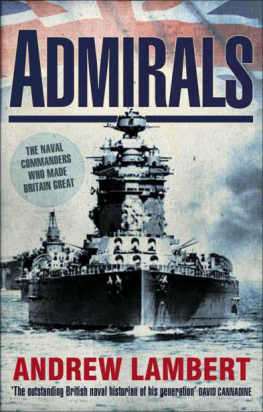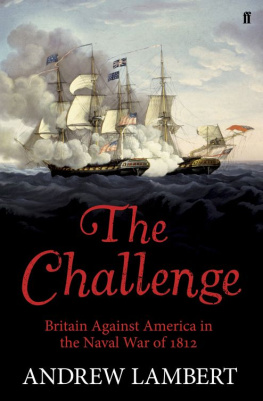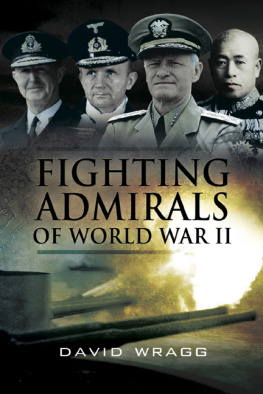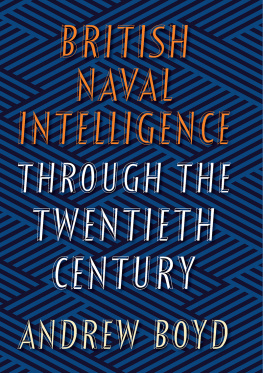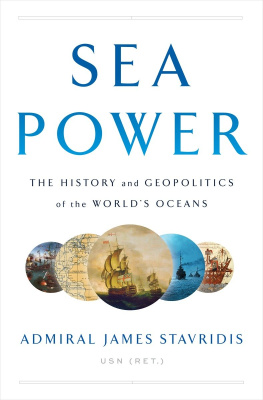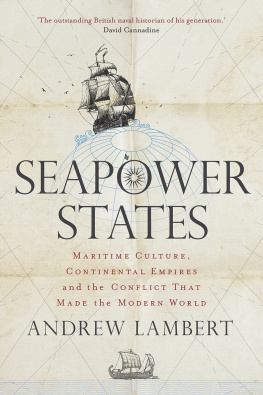Preface
On 21 October 2005 it was my privilege to deliver the bicentenary address at Burnham Thorpe, birthplace of the greatest admiral. I spoke in the church where his reverend father had officiated for over forty years, alongside the memorials to his parents and two long-forgotten brothers. That day the triumph and tragedy of Trafalgar stretched across the globe: few could have been unaware of the hero, his life and deeds.
Yet while Britain restored Nelson to his rightful place as national hero and defining genius, the celebration of his unique talents seemed to diminish the achievements of every other admiral, consigning them to the dusty footnotes of history, as if Nelson was enough. That would be a gross injustice: Nelson knew that he stood on the shoulders of giants, and he inspired others to carry on the art of the admiral in the centuries that followed. This book places Nelson in context by tracing the development of naval command across four centuries, thus revealing what it was that made him unique.
The eleven British admirals whose careers are examined here all exercised the highest command, in war and peace, at sea and ashore. They directed the most consistently successful fighting force in world history, one whose triumphs were achieved through sustained excellence rather than individual genius. The Royal Navy was never perfect, even at Trafalgar, and has had its fair share of fools and knaves; but it has always been able to recover from setbacks to emerge victorious, even against such recent foes as the Treasury and the Royal Air Force.
This study charts how the art of naval command has evolved within a single organisation over a period of four hundred years. The figures discussed are not necessarily the best admirals in history, even supposing such a thing could be measured, but each undoubtedly contributed to the evolution of the art; studied together, their careers form a coherent pattern. Each should be seen in the context of his own period: to compare Lord Howard and Lord Cunningham, for example, would be an injustice to both, and wholly unhistorical.
It is noteworthy that while the newly cleaned Nelson stands in majesty in Trafalgar Square, the other great admirals are conspicuous by their absence. If one judged purely by the statues on display in central London, one might imagine that Britains history was made solely by soldiers, politicians and airmen! We fail to recognise the importance of the sea to our national history: Britains development as a modern democratic state, the global dominance of the English language and the nations continuing prosperity are the legacy of the admirals represented here, and yet their names are mostly forgotten. History is not a mere record of the past, but a constant reminder of the way in which we reached the present. As Britain grapples with some of the biggest questions it has ever faced, returning the sea to the centre of public debate will help us better understand how it became the multicultural nation we know today.
In the course of writing this book I have once again trespassed on the good will of family and friends, colleagues and students. Teaching naval history remains the single most important influence on my work: students and their questions are the key to keeping an open mind. The striking renaissance of the discipline of naval history in the past two decades has created an impressive body of literature, one that makes a crucial contribution to broader discussions of national identity, state policy and scientific endeavour.
I have profited greatly from the advice of many readers. I taxed John Beeler, John Brooks, David Davies, Richard Harding and Alan James with individual chapters, while Michael Tapper read the entire draft. Their generosity and insight have saved me from errors of fact, balance and judgement and much improved the final result, but I alone must be responsible for what remains. This is my second book with Julian Loose at Faber, and I can only repeat what I said in 2004: it has been a pleasure from start to finish.
Having had the opportunity to write this book while continuing in a full-time teaching post is a reflection of the support given by my colleagues in the Department of War Studies at Kings College, London. It is my privilege to work in the ideal environment for naval history, where the study of war, strategy and the armed forces is the basis of the curriculum, with students of the highest quality at all levels. Kings has been the academic home of naval history for well over a century, and continues to lead the field. I am indebted to many colleagues, but the Principal, Professor Rick Trainor, and Vice-Principal, Professor Sir Lawrence Freedman, deserve special mentions for their support. My colleague in the Laughton Naval History Unit, Dr Alan James, has not only doubled the number of naval historians in the department, but has done so to remarkable effect. Likewise the community of research students: an unrivalled gathering of talent and application, they hold out the brightest prospects for the future of the discipline. Much of this has been made possible by the support of the Tubney Charitable Trust, and others. If the development of naval history in the twenty-first century is to be sustained, we must hope that such generosity will be replicated.
My family continues to suffer the burden of having a historian in the house without protest, arriving at some unusual destinations in the process. Zohra and Tama have tolerated these admirals, and I can only hope they will appreciate the results. The support of my parents has been a source of strength and sustained my connection with things that really matter.
Andrew Lambert
Kew
INTRODUCTION
Searching for the Sublime
For four hundred and fifty years a group of small islands off the north-west coast of Europe, moderately populated and not especially favoured by their climate, exerted a disproportionate influence on world affairs. First they defied the superpowers of the age Spain and then France then in the process they themselves became a superpower. By the middle of the nineteenth century they had become the base of a unique world empire of trade and profit, the first global power and in the twentieth century they cashed in those assets to play a vital role in winning three titanic conflicts.
This astonishing run of success was based on one critical advantage: naval power. The admirals who shaped and secured the unique instrument of British global pre-eminence possessed rare talents, consistently turning ships, seamen and money into a war-winning tool of state power, unrivalled in efficiency, economy and energy. Over the centuries the art of the admiral developed to meet new challenges and fresh foes but it never failed.
This book concerns eleven men whose careers created, refined and reconfigured the role of the admiral. Their work was of the utmost public importance because it was on the Navy, under the good providence of God, [that] the Wealth, Safety and Strength of this Kingdom chiefly depend. While other nations looked to armies for their security, England and after 1704 Great Britain looked to the sea, and for over three hundred years the Royal Navy dominated the ocean. The end of empire and the relative decline of Britain should not obscure the critical role that its admirals played in creating the modern British state, and much else besides.
The art of the admiral is a curious compound of seamanship, tactics, diplomacy and judgement. It calls for leaders of courage and authority, able to inspire their followers and overcome all odds. Like most arts, that of the admiral has a presiding genius, who with a unique combination of experience, education, insight and dedication elevated the art of war at sea to the sublime, creating a command style that was startlingly simple and stunningly complete. Horatio Nelsons battles were special they changed the course of history.

